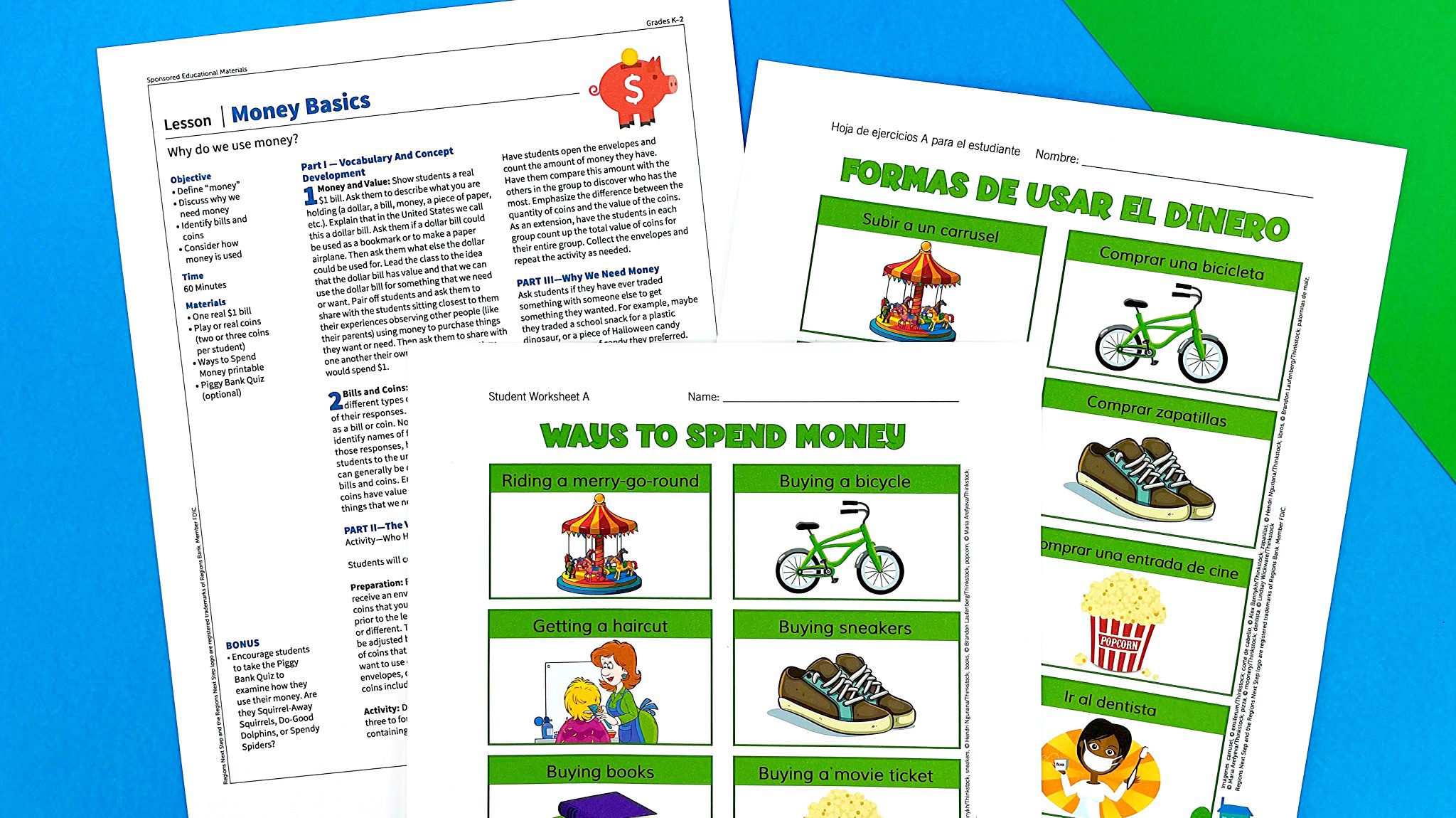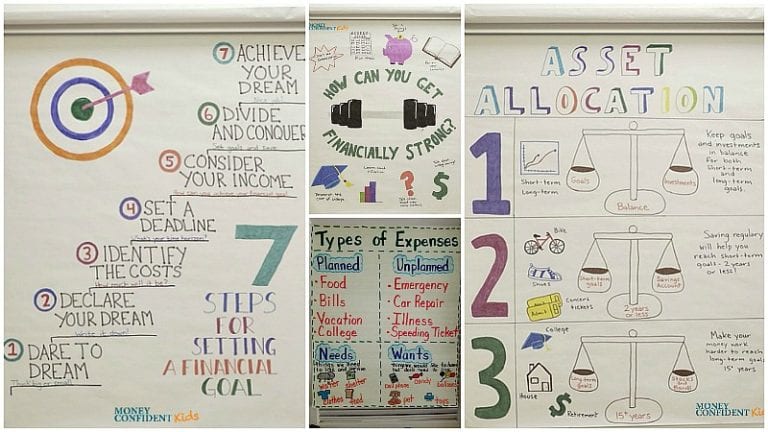Understanding the concept of money is super important in the early grades, but where do you start? What is money? Why do we need it? How is it used? To answer these questions and more for your young learners, try this “Money Basics” lesson for grades K-2. It’s all part of our Adventures in Math resource center!
What’s in the “Money Basics” lesson?
This lesson is divided into four parts:
Part 1—Vocabulary and Concept Development: Discussion centers around a dollar bill. Students identify different types of money.
Part 2—The Value of Money: Students compare amounts of money in a fun “Who Has the Most?” activity.
Part 3—Why We Need Money: Students learn the difference between goods and services using the Ways To Spend Money activity sheet. Bonus: It’s available in Spanish.
Part 4—Where Money Comes From: Introduce the idea of working to earn money.
Standards
- Develop an understanding of personal financial literacy, including identifying income, wants and needs, saving and spending, and charitable giving.
- Participate in group discussions.
- Communicate math ideas and reasoning and identify and count various types of money.
- Solve addition and subtraction problems involving numbers up to 100.
- Apply mathematics to solving problems arising in everyday life.
- Solve one- and two-step word problems.
- Solve word problems involving dollar bills, quarters, dimes, nickels, and pennies using $ and ¢ symbols appropriately.


